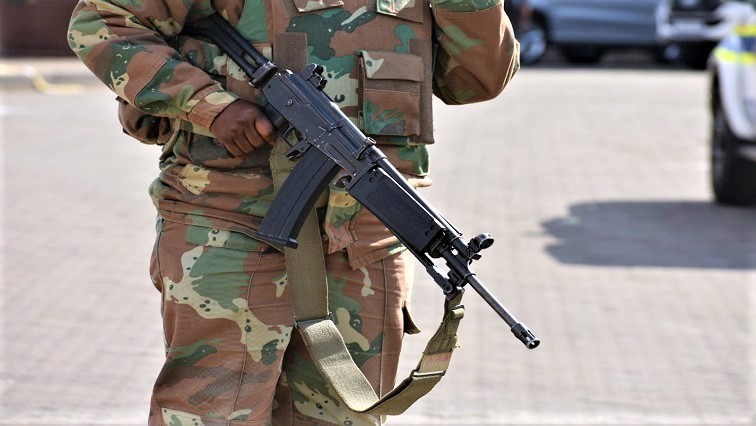The Head of United Nations Peacekeeping has expressed his deepest condolences to South Africa after the loss of two soldiers serving in the SADC force deployed in the eastern DRC.
The SANDF earlier confirmed that they were killed and an additional 20 soldiers injured during a rebel M23 attack on the town of Sake, in North Kivu Province.
The Under-Secretary-General for Peace Operations Jean-Pierre Lacroix, prompted by a question from SABC News, explained that coordination between SAMIDRC, the N. Peacekeeping Mission, MONUSCO, and the DRC’s Armed Forces, The FARDC, continued in the context of a complex security environment in the east.
As casualties continue to mount among SANDF troops deployed as part of SAMIDRC, condolences from the high echelons of the United Nations, that is currently engaged in a phased withdrawal from the country after a request from President Felix Tshisekedi for MONUSCO’s complete withdrawal from the country.
LaCroix says, “Let me, express, our deepest condolences to, the Republic of South Africa for the death of these two soldiers. And, of course, we hope that those who are injured as a result of these attacks will recover soon. In terms of coordination with between the SAMIDRC, the FARDC and MONUSCO itself, it is ongoing. We do believe that it is very important to sustain and indeed take forward this, coordination because, you know, it is a very complex, situation, a complex theater of operation. And it’s critical that we do our level best to make sure that we have the highest level of coordination.”
The UN on Tuesday announced the successful withdrawal from South Kivu which marks the end of the first phase of its disengagement from the country, as agreed with the Congolese government.
SABC News pressed LaCroix on whether this continued withdrawal would risk leaving a security vacuum and whether other forces left there would be up to the task.
“The disengagement plan that we agreed upon, you know, agreed with the Congolese authorities, provide for a first step, which is now completed. That is the disengagement from the province of South Kivu. The next phases will be determined, they are not yet determined based on the joint assessment that will be conducted jointly by the authorities of the Congo and the UN. It took some time because the Congolese, there was no government in the DRC until recently, now there is a government. We’re in a position to resume these discussions. And then based on that, we will jointly assess what the next phases can be. Of course, the Security Council will have an important role in determining ultimately what will happen, you know, in the next month and years.”
He said the Secretary-General would shortly submit options to the Security Council on the way forward for MONUSCO in an assessment that will give the highest level of attention to the current security situation in the eastern DRC.
“The area that is affected by M23 offensive, continues to go through a very, very serious, situation with very significant consequences on the civilian population. I believe that the areas that have been taken over by M23 has been rather expanding over the recent period of time. And unfortunately, we saw also a number of civilian fatalities as a result of attacks from the ADF. So, this is a situation where obviously the authorities of the DRC, as well as, the UN have to take into account. We have to take into account when it comes to looking at the future of our presence. I mentioned the current discussions or any or the upcoming part of the discussion when it comes to potential increased support to SAMIDRC, I want to, also highlight the fact that in spite of these, very difficult situation, our peacekeepers in the DRC continue to protect hundreds of thousands of civilians and some of them very directly protected by those peacekeepers.”
And as the UN pulls back, the conflict appears to be intensifying in Congo that today represents one of the largest humanitarian crises in the world and the second largest displacement crises globally, only after Sudan.





